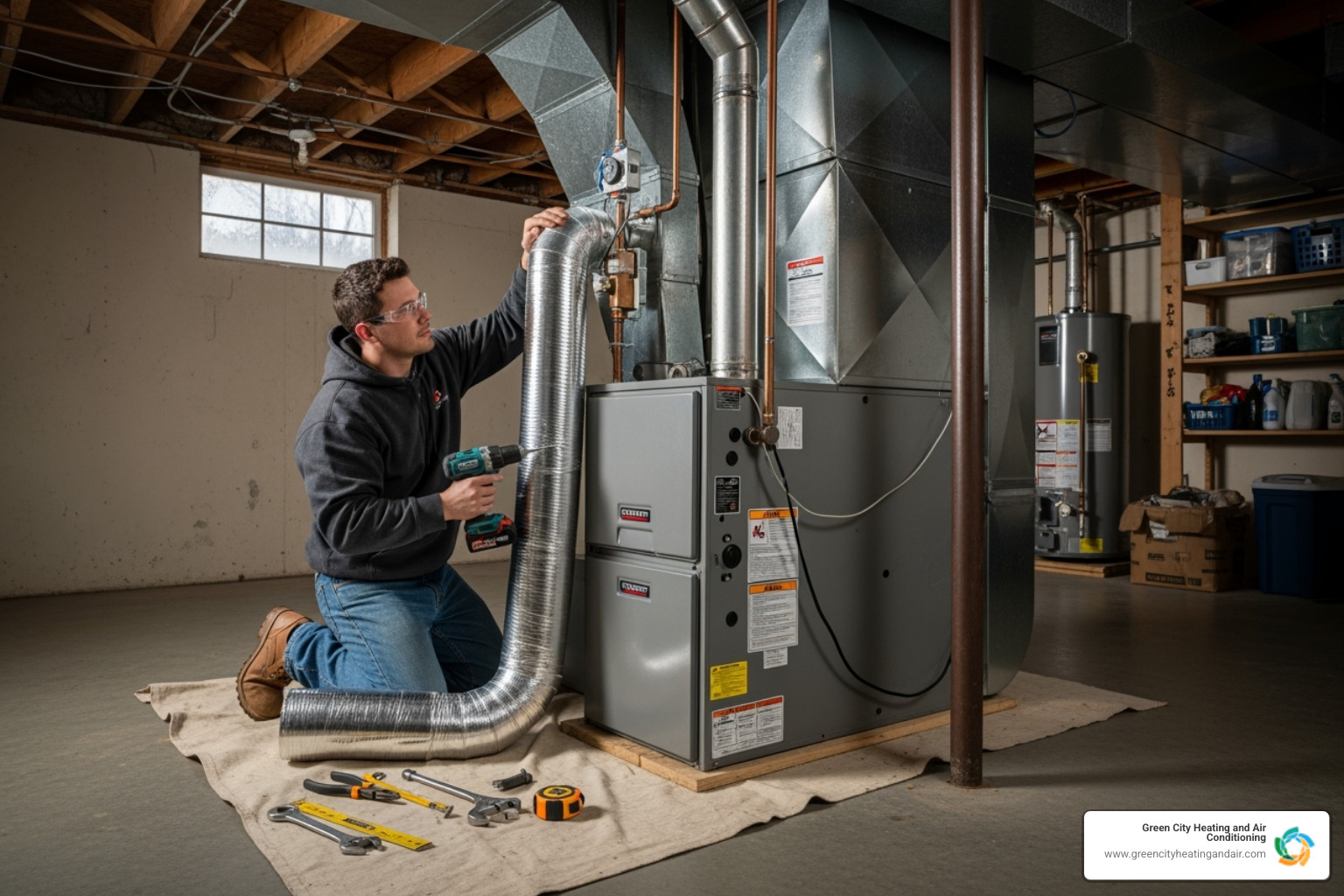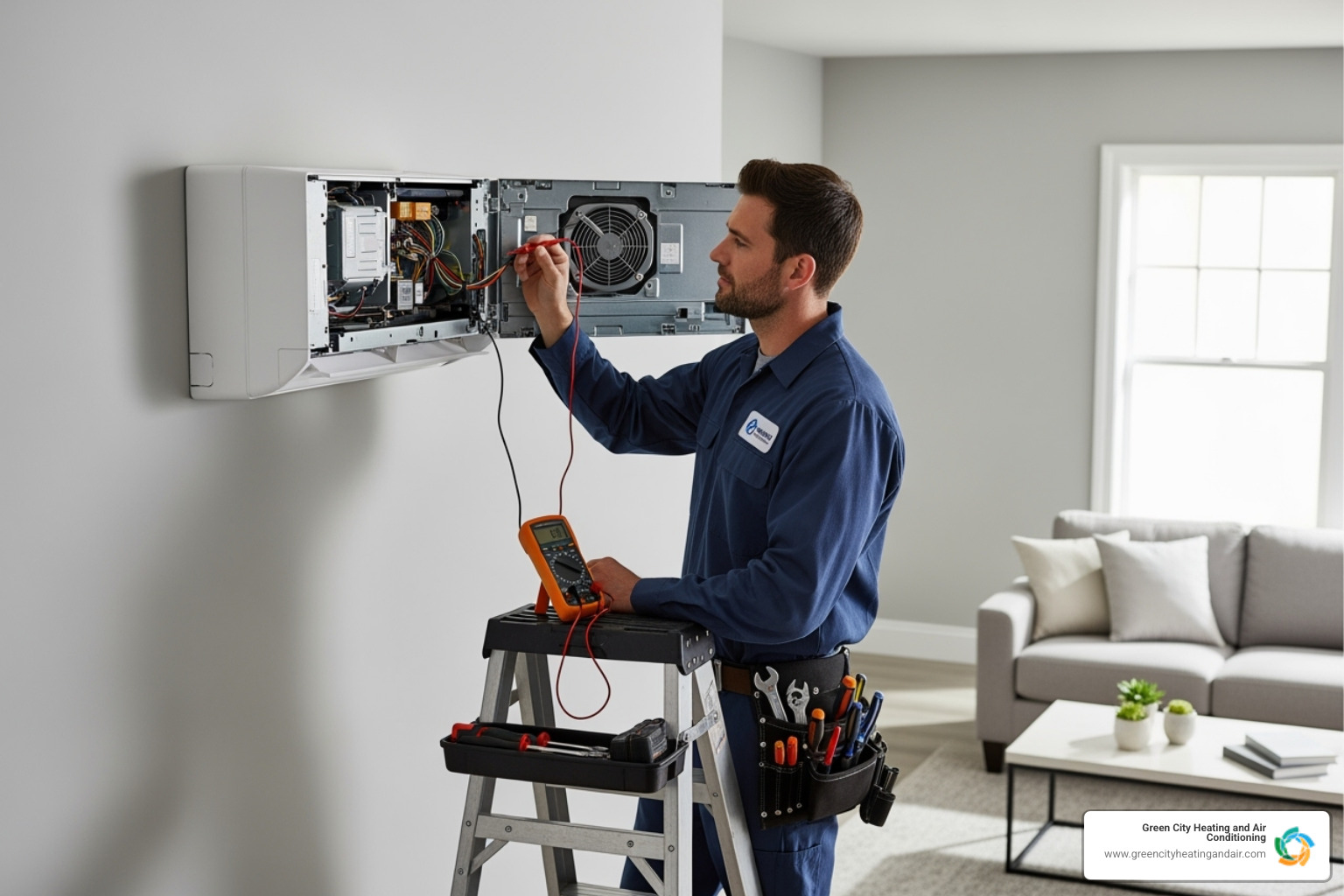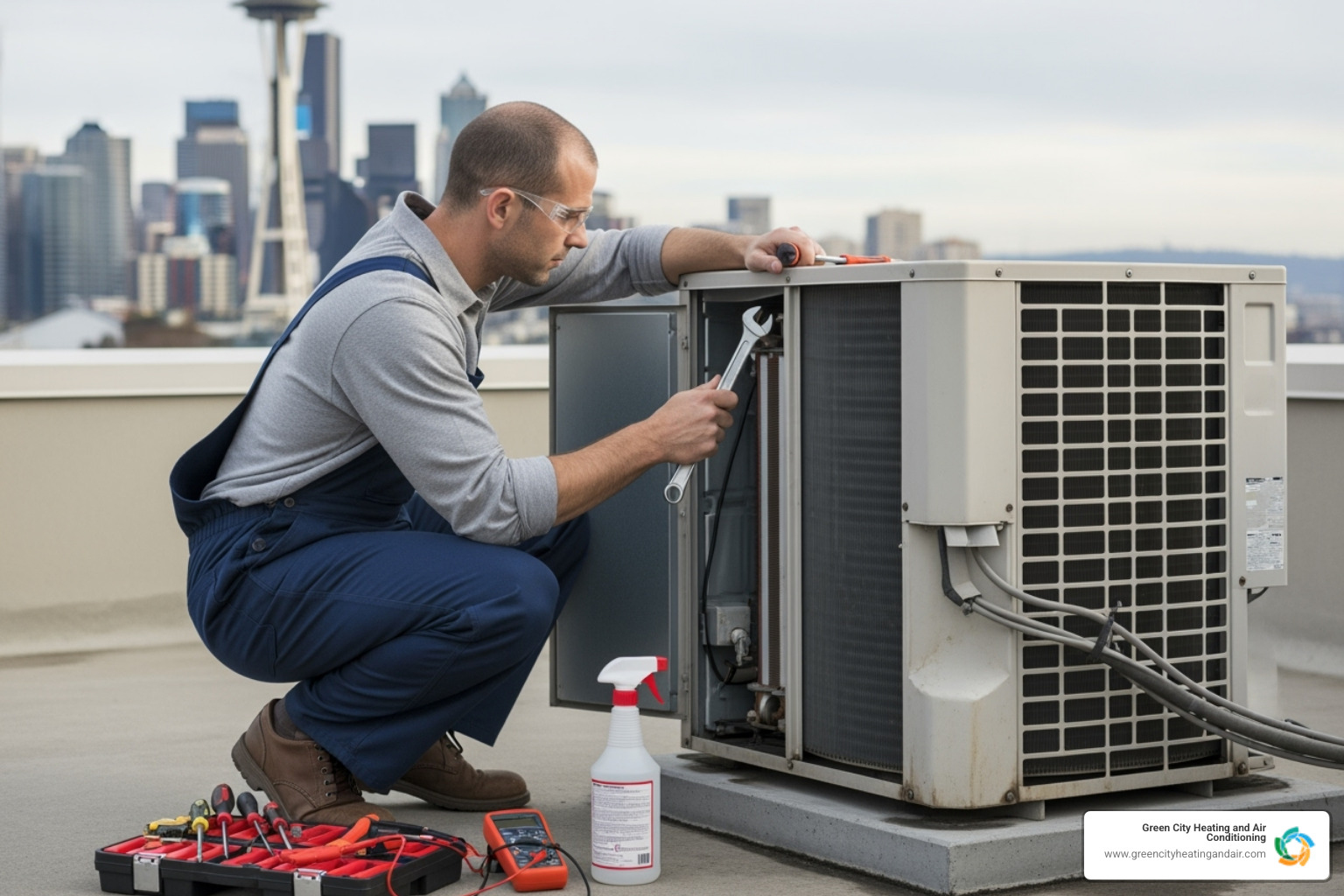Condensation is a normal part of how mini ductless AC systems operate, but when those water droplets start building up more than they should, there could be a larger issue at play. Homeowners in Clyde Hill may start noticing water pooling around the unit, damp patches on nearby walls, or dripping sounds that don’t seem to stop. These are more than just everyday annoyances. Excessive condensation can lead to bigger problems with both your cooling system and your home.
When a mini ductless AC in Clyde Hill begins to create more condensation than expected, it's a sign that something within the system isn’t working as it should. Whether it’s clogging, improper airflow, or an issue with how the unit was installed, it needs to be addressed quickly to avoid water damage or performance loss. Understanding where the problem starts is key to keeping your home cool and dry through the warm summer months.
Common Causes of Excessive Condensation
There’s no single reason why excessive condensation happens in a mini ductless AC unit, which can make it frustrating to pinpoint without help. Condensation forms when warm air passes over the cold coil in your indoor unit. But when too much moisture shows up or it overflows from the drainage pan, it usually means that one or more parts of the system aren’t functioning like they should.
Here are several common causes behind excessive condensation:
1. Incorrect Installation or Placement
If your unit wasn’t installed level, water may not drain properly. Wall-mounted mini splits should sit at a slight tilt so that the condensate drains out through the intended line. If the angle is wrong or the drain pipe isn’t connected properly, water may collect inside the cover and leak out elsewhere.
2. Blocked or Dirty Air Filters
When filters are clogged, airflow through the system is restricted. That can cause the coil to get too cold, which leads to more water vapor turning into liquid. It also slows down the evaporation process, leaving more moisture behind. Filters need to be checked and cleaned regularly to avoid this issue.
3. Poor Insulation or Ventilation
Poor airflow around the unit can trap warm, moist air, raising humidity levels and causing the system to overproduce condensation. If the area around the AC unit is closed off or not ventilated well, that air becomes harder to manage. Homes in Clyde Hill with older insulation or limited airflow in certain rooms may face this problem more often.
4. Low Refrigerant Levels
A system low on refrigerant may cause the evaporator coil to freeze. When it thaws, the ice melts quickly, flooding the condensate pan with more water than it’s designed to handle. This isn’t just a drainage problem. It’s a warning sign of a cooling issue that needs to be diagnosed quickly.
One example we've seen in Clyde Hill was a homeowner who noticed streaks of water running down the interior wall under their indoor AC unit. The issue turned out to be a blocked drain line, made worse by the unit being slightly tilted in the wrong direction during installation. Once corrected, the dripping stopped and the system resumed normal operation.
Paying attention to where the water is coming from, how often it occurs, and whether it coincides with long cooling cycles can help narrow down what’s causing it. But the underlying reason often needs a trained technician to confirm and correct the root of the problem.
Potential Consequences of Ignoring Condensation Issues
Letting condensation problems go unchecked in a mini ductless AC system might seem harmless at first. But in homes around Clyde Hill, this can lead to a chain of problems that are much harder and more expensive to fix later on. What starts as a few drops of water could create serious damage if the root cause isn’t dealt with promptly.
Here’s what can happen if condensation issues are ignored:
- Moisture buildup can lead to mold and mildew growth. These thrive in damp environments and can spread through walls, ceilings, and insulation.
- Water leaking from a unit may lead to stains, warped woodwork, or paint damage. In extreme cases, it can compromise structural materials like drywall or flooring.
- A system that’s constantly dealing with improper drainage or ice buildup tends to run less efficiently. That will drive energy bills up and place a heavier load on the compressor.
- Mini ductless AC units built to last for years can wear out earlier than expected if they’re forced to operate under abnormal conditions for too long.
One Clyde Hill homeowner ignored a slow leak under their unit for weeks, figuring it was normal. Over time, that drip soaked into the nearby trim and baseboard, leading to wood rot and mold patches. That small issue turned into a major repair inside the home. Something that could have been prevented by addressing the condensation issue sooner.
How to Troubleshoot Excess Moisture Around Your Unit
If water is leaking or pooling under your mini ductless AC in Clyde Hill, there are some immediate steps that can point to the cause. While these won’t permanently resolve the issue, they can help catch warning signs before things get worse.
Start by checking the following:
1. Inspect your air filters. If they’re dusty or clogged, they need to be cleaned or replaced. Dirty filters block airflow and add more strain to the system.
2. Take a look at the return and supply vents. Blocked vents or poor airflow in the room may be creating a humidity pocket around the unit.
3. Check the insulation and sealant around the opening where refrigerant lines and wiring exit the wall. Gaps may be letting outside air in, raising the room’s moisture level.
4. Listen for unusual sounds during cooling cycles. Clicking, grinding, or dripping might point to ice buildup or a blocked drainage line.
5. Look for rust or water marks on the wall around the indoor unit. These can help identify how long the water has been leaking and where it might be coming from.
Although reviewing these areas is helpful, repairs or corrections should be handled by a trained professional. Attempting to realign a unit, refill refrigerant, or clear a condensate drain without the right experience can worsen the problem or create new ones.
Why Professional AC Help Makes a Difference
Mini ductless AC systems seem simple from the outside, but they require precision to work correctly. When your system is producing too much condensation, the issue is usually tied to more than one component. Our professionals know how to assess not just the symptom but the systems behind it, whether that is improper installation angles, faulty sensors, refrigerant imbalance, or drainage blockages.
DIY fixes like tilting a unit or flushing the drain with vinegar don’t address long-term concerns, and they can risk voiding warranties. Our technicians use reliable diagnostics to trace condensation problems back to their source. That might mean evaluating how the unit was installed, measuring refrigerant pressure, or checking electrical sensors. This approach gives homeowners peace of mind while helping the system perform better and longer.
In homes across Clyde Hill, we see how overlooked problems like this can lead to other system failures or even indoor air quality problems. When you have trained eyes on the issue, you get a complete view of how the system is operating, not just a quick fix for the water leak.
Keeping Your Clyde Hill Home Comfortable and Dry
Summers in Clyde Hill demand a reliable cooling system, and dealing with ongoing AC water leaks can be both stressful and costly. Resolving excessive condensation from your mini ductless AC isn’t just about draining water. It’s about making sure the whole system runs the way it should. Whether condensation stems from airflow problems, low refrigerant, or improper install angles, catching the issue early helps avoid expensive damage to walls and ceilings.
Routine maintenance checks also help spot small issues before they turn into big ones. These checks confirm that filters stay clean, refrigerant remains balanced, and drainage lines stay clear. Preventative inspections are more cost-effective than having to fix water damage or remove mold down the road.
Homeowners in Clyde Hill deserve cooling systems they don’t have to worry about. When condensation issues are handled quickly by professionals, your mini ductless AC can run more efficiently and last longer. It provides better cooling, cleaner air, and a drier, safer home all through the summer.
If you are dealing with persistent condensation problems from your mini ductless AC in Clyde Hill, our experienced team can help resolve the issue before it leads to costly damage or system inefficiency. At Green City Heating and Air Conditioning, we are committed to keeping your home comfortable and moisture-free. For a quick estimate or to book a service visit, please contact us today.
More Blogs
Latest
insights and tips

Warmth Unleashed: The Ultimate Seattle Furnace Installation Handbook

Emergency Ductless AC Repair in Bellevue: Get Your Cool Back Fast










